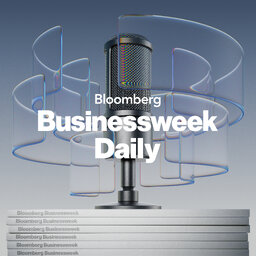Powell Says Recent Data Raise Confidence Inflation on Path to 2%
Watch Carol and Tim LIVE every day on YouTube: http://bit.ly/3vTiACF.
Carlyle Co-Founder David Rubenstein shares the details of his Peer-to-Peer interview with Fed Chair Jay Powell who said second-quarter economic data has provided policymakers greater confidence that inflation is heading down to the central bank’s 2% goal, possibly paving the way for near-term interest-rate cuts. David Konrad, Managing Director at KBW, breaks down bank earnings provides his outlook. Peter Atwater, President at Financial Insyghts, talks about connecting the economy to Wall Street and politics. LinkedIn COO Dan Shapero explains how AI is changing jobs and the labor market. And we Drive to the Close with Mary Ann Bartels, Chief Investment Strategist for Sanctuary Wealth.
Hosts: Carol Massar and Tim Stenovec. Producer: Paul Brennan.
In 1 playlist(s)
Bloomberg Businessweek
Listen for reporting from the magazine that helps global leaders stay ahead. Hosts Carol Massar an…Social links
Follow podcast
Recent clips

MongoDB CEO on Concerns About Weak Forecast
11:22

Stocks Pare Oil-Fueled Rout on Trump’s Assurances
37:39

"Big Short" Legend Danny Moses on Dimon, Private Credit, Prediction Markets
21:05
 Bloomberg Businessweek
Bloomberg Businessweek